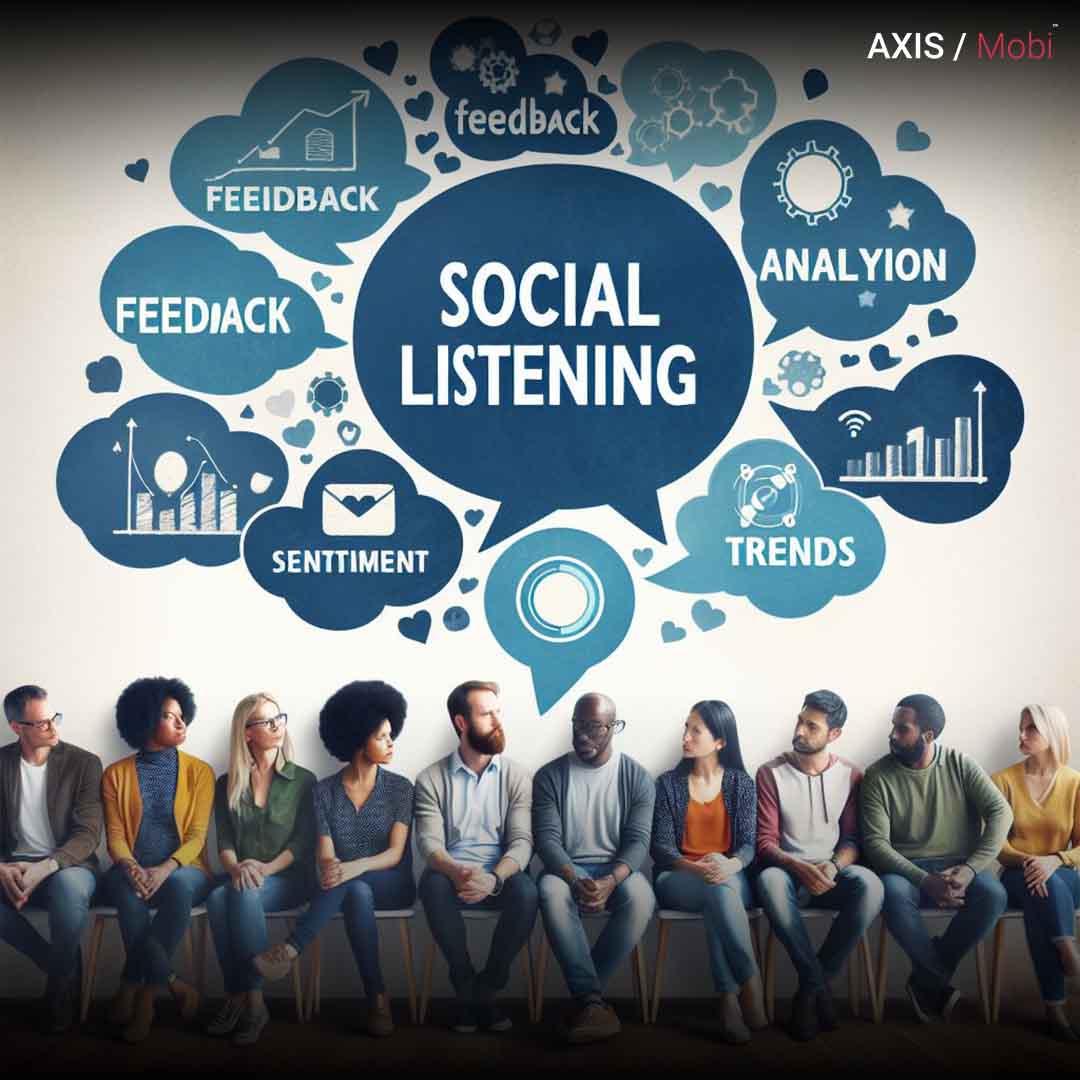Social media has become integral to our daily lives in today’s digital age. From connecting with friends and family to following our favourite brands, social media platforms have transformed how we communicate and interact with the world. However, social media is not just a tool for personal connections; it has also become a powerful resource for businesses to engage with customers.
One of the key strategies that businesses are increasingly leveraging is social listening, which involves monitoring and analyzing online conversations to gain valuable insights into customer preferences, sentiments, and trends. In this blog, we will explore the power of social listening for customer engagement and its impact on businesses, backed by the latest statistics.
Understanding Social Listening

Social listening goes beyond tracking mentions and comments about a brand on social media. It involves analyzing and interpreting the vast amount of data generated on social platforms to understand what customers say about a brand, its products, and the industry. By monitoring conversations, businesses can gain real-time insights into customer feedback, industry trends, and competitive intelligence, enabling them to make informed decisions and tailor their strategies to meet customer needs.
The Impact of Social Media Listening on Customer Engagement
Listening to and understanding customer conversations on social media gives businesses a powerful tool for enhancing customer engagement. By actively participating in online discussions and addressing customer concerns, companies can build stronger relationships with their audience and demonstrate their commitment to customer satisfaction. According to a recent study by Sprout Social, 83% of consumers appreciate it when a brand responds to them on social media, highlighting the importance of active engagement.

Moreover, social listening allows businesses to identify emerging trends and topics of interest within their target audience. By staying attuned to these insights, companies can create relevant and timely content that resonates with their customers, driving higher engagement and brand loyalty. A report by Hootsuite revealed that 60% of marketers use social listening to improve their content strategy, demonstrating its impact on creating compelling and relevant content.
Utilizing Social Listening for Product Development

In addition to impacting customer engagement, social listening also plays a crucial role in informing product development and innovation. By analyzing customer feedback and sentiments, businesses can identify areas for improvement, uncover unmet needs, and gather ideas for new product features. According to a survey by Brandwatch, 72% of companies use social media listening to gather feedback for product development, highlighting its significance in driving innovation and meeting customer expectations.
The Role of Social Listening in Crisis Management

In the age of social media, a brand’s reputation can be significantly influenced by online conversations. Social listening enables businesses to proactively monitor and address potential issues before escalating, safeguarding their reputation. By promptly identifying and addressing customer concerns, companies can mitigate the impact of negative sentiment and demonstrate their commitment to customer satisfaction. According to a study by J.D. Power, 67% of consumers have used a company’s social media site for servicing, underscoring the importance of social platforms in addressing customer issues.
What do stats tells us?
The latest statistics further underscore the importance of social listening:
1. According to a report by GlobalWebIndex, 54% of social browsers use social media to research products.
2. A study by PwC found that 58% of consumers consider social media an essential channel for customer service.
3. Research by Salesforce revealed that 70% of consumers say technology has made it easier than ever to take their business elsewhere.
In conclusion, social listening has emerged as a powerful tool for businesses to engage with customers, gather valuable insights, and drive strategic decision-making. By leveraging the latest statistics and trends, businesses can harness the power of social media listening to enhance customer engagement, inform product development, and effectively manage their online reputation. As social media continues to evolve, businesses that embrace social listening as a core strategy will be well-positioned to build meaningful connections with their customers and stay ahead of the competition.
Frequently Asked Questions (FAQs)
-
What is social listening?
It is also called as Social Media Listening. Social listening involves monitoring and analyzing online conversations on social media platforms to gain insights into customer preferences, sentiments, and trends.
-
How does social media listening impact customer engagement?
Social listening enhances customer engagement by allowing businesses to actively participate in online discussions, address customer concerns, and create relevant content that resonates with their audience.
-
What role does social listening play in product development?
Social listening informs product development by helping businesses gather feedback, identify areas for improvement, and uncover ideas for new product features based on customer sentiments and preferences.
-
How does social listening contribute to crisis management?
Social listening enables businesses to proactively monitor and address potential issues on social media, safeguarding their reputation by promptly identifying and resolving customer concerns.
-
What do recent statistics tell us about the importance of social media listening?
Recent statistics highlight the significance of social listening, indicating that a significant portion of consumers use social media for product research, consider it essential for customer service, and are willing to switch businesses based on technology-driven experiences.




